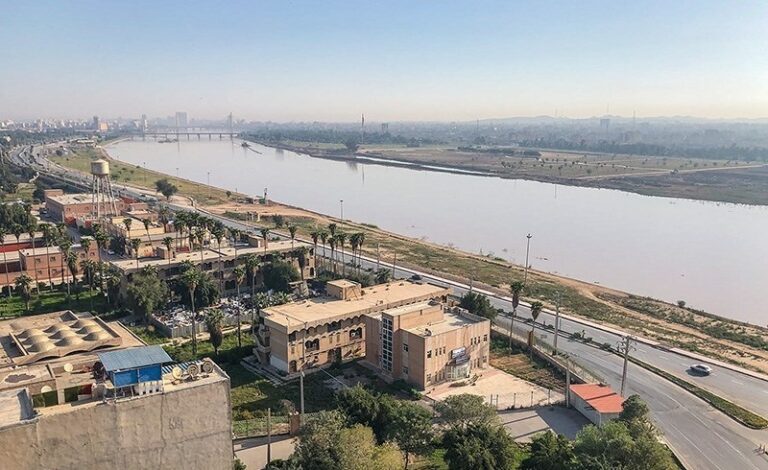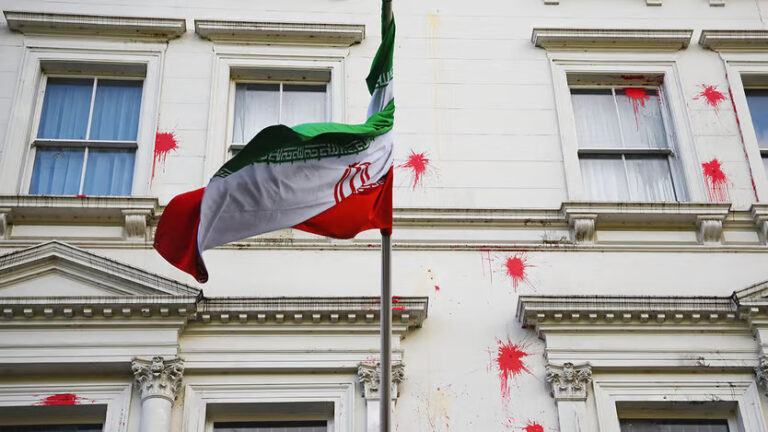Al Arabiya with agencies
Iran has the knowledge and scientific capability to produce nuclear weapons but will never do so, a prominent 
lawmaker said. Gholamreza Mesbahi Moghadam said Iran can easily produce the highly enriched uranium that is used to build atomic bombs but it is not Tehran’s policy to go that route. “Iran has the scientific and technological capability to produce (a) nuclear weapon, but will never choose this path,” Moghadam told the parliament’s news website, icana.ir, late Friday. Moghadam is a parliamentarian not a government official and his views do not represent the Iranian government’s policy. It is the first time that a prominent Iranian politician has publicly stated that Iran has the technological capability to produce a nuclear weapon. The U.S. and its allies accuse Iran of using its civilian nuclear program as a cover to develop nuclear weapons. Iran denies the charges, saying its program is peaceful and geared toward generating electricity and producing radioisotopes to treat cancer patients. Iran’s Supreme Leader Ayatollah Ali Khamenei has repeatedly insisted that his country is not seeking nuclear weapons, saying that holding such arms is a sin as well as “useless, harmful and dangerous.” President Mahmoud Ahmadinejad has also asserted that if Iran one day decides to build nuclear weapons, it will do so openly and won’t fear anybody. Iran says it is enriching uranium to about 3.5 percent to produce nuclear fuel for its future reactors and also to around 20 percent to fuel a research reactor that produces medical isotopes to treat cancer treatment. Uranium has to be enriched to more than 90 percent to be used for a nuclear weapon. The U.N. nuclear agency has also confirmed that centrifuges at the Fordo site near Iran’s holy city of Qom are churning out uranium enriched to 20 percent, and says uranium enriched to that level can more quickly be turned into weapons-grade material. Moghadam, the lawmaker, said that Iran has the means to produce 90-plus percent enrichment. “There is a possibility for Iran to easily achieve more than 90 percent enrichment,” icana.ir quoted Moghadam as saying.
Civilian nuclear program
Meanwhile, President Barack Obama has told Iran the United States would accept Tehran having a civilian nuclear program if the Islamic state can prove it is not seeking atomic weapons, the Washington Post said Friday.
Obama sent such a message to Tehran via Turkish Prime Minister Recep Tayyip Erdogan, who delivered it to Iran’s Supreme leader Ali Khamenei last week, said the newspaper’s foreign affairs columnist David Ignatius.
“President Obama has signaled Iran that the United States would accept an Iranian civilian nuclear program if Supreme leader Ali Khamenei can back up his recent public claim that his nation ‘will never pursue nuclear weapons’,” said Ignatius.
“A few days before traveling to Iran, Erdogan had held a two-hour meeting with Obama in Seoul, in which they discussed what Erdogan would tell the ayatollah about the nuclear issue and Syria,” he wrote.
The United States said Thursday that it still expected Iran to hold talks with six world powers on the Islamic republic’s disputed nuclear program to go ahead next week, despite a dispute on the venue being Istanbul or Baghdad.
According to Ignatius, Obama asked Erdogan to tell Khamenei “that the Iranians should realize that time is running out for a peaceful settlement and that Tehran should take advantage of the current window for negotiations.”
However, “Obama didn’t specify whether Iran would be allowed to enrich uranium domestically as part of civilian program the United States would endorse. That delicate issue evidently would be left for the negotiations.”
It is not the first time that the U.S. says that it okays a civilian nuclear program in Iran.
Turkey has told Iran it remains ready to host the talks between Iran and the P5+1 group, Iran’s Al-Alam television station reported Friday, but the Islamic republic has said it wanted the meeting held in Baghdad or China instead.
Iran last held talks with the six powers ̶ Britain, China, France, Germany, Russia and the United States ̶ in January 2011 with no results.
Ignatius added that “the challenge for negotiators is whether it’s possible to turn Khamenei’s public rhetoric into a serious and verifiable commitment not to build a bomb.”











+ There are no comments
Add yours